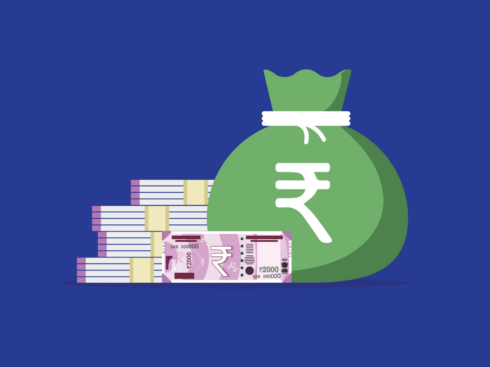
SUMMARY
All seed-stage startup founders love their dreams about the future more than other startup founders history of failures
The biggest failure happens when tech founders are unable to release the product as they are building it ground up
Too much money is like having too much time. Founders lose the focus.
It takes a wise man to learn from his mistakes, but an even wise man to learn from others
All seed-stage startup founders love their dreams about the future more than other startup founders history of failures. They are out to create history without learning from history. These lessons are generic, a compilation of basics which may or may not apply to your company as these are focused on early-stage startups.
When You Read This Article:
- You will get awareness about what changes to make to become successful. Learn and know everything that can be fixed with your seed-stage startup.
- The top reasons why startup fails and how it occurs in the journey of building a company ground up
- Avoid fatal mistakes when raising capital, engagement with venture capitalists and scaling up the startup
- I am sure startup founders, investors will contribute with their rich experience in the comments section & help build a useful repository of failures to learn.
To improve is to change; to be perfect is to change often.
- Founders working on an idea which is not easy to explain or they are unable to communicate. They fail to develop a convincing pitch narrative that will attract and persuade investors to fund the idea. They pitch their technology product and not a business. A complex idea though very useful has no value to customers or investor if they can’t understand it.
- Everything can be built, but it not necessary to build everything. The biggest failure happens when tech founders are unable to release the product as they are building it ground up. They do not believe in partnership and overbuild the product. It is evident that when you roll out your custom code, everything takes time, more time than you can afford. Your priorities end up in chaos, end up wasting a lot of time.
- Startup founder hired people for their track record, not their potential.The mistake startup founders do is to hire people with credentials. The startup will be in serious trouble when you end up hiring people who have no hunger to achieve. These people come with the baggage of entitlement, commitment, expectations and way of doing things at work. For early-stage startup companies, every hire can make or break their future.
- Being successful in raising too much money early. Too much money is like having too much time. Founders lose the focus. They end building a plan to spend not to build a business. Too much capital at the seed stage changes the startup team mindset in unhelpful ways. Shortage of capital in early-stage forces startup to make hard choices about what they will build and what they won’t.
- Building products that no one wants.All founders have a hypothesis that they are solving a big problem and go all-in basis on initial evidence found with anecdotal success. It puts you on the wrong track, and you will end up building products with no specific target users in mind. The product they have built solves no one’s problem. Make sure that your customer / user / buyer / client exists.
- There is no respect for money, frugality or budgets. These founders have little or no understanding of finance, cash flows and prudent use of funds. They spend recklessly on fancy office setups, customer acquisition, parties, promotions, advertising, branding and doing additional hires. They don’t plan ahead; in reality, they have no plan. They believe that they are not accountable.
- Getting a large contract, a big customer very early.A startup typically gets choked serving the big customer. The more bigger the customer or the contract, the more time it will take to develop & deliver the product. At an early-stage startup, you tend to customise your product or services to the big customer. It equally creates a financial dependency.
- Superman founders become bottlenecks for growth. These founders are lone rangers. They can’t work with a team. They do not trust anyone. They do not delegate. Every founder is human, and no one has unlimited hours of working or energy to solve everything. These startups can’t scale as very soon; there will be decision fatigue.
- Raising money from wrong investors with no reputation.It tough to raise capital, but it is more lethal if you end up raising capital from toxic investors. Early-stage ideas are fragile and need lots of nurturing. If founders chase money blindly without the understanding of the background, culture and intentions of investors, it is bound to fail. Your selection of first lead investor is a critical decision which should be taken on investor pedigree and not be taken based on the investment amount.
- Founders are looking to generate income, not wealth.The first & only priority should be about the financial health of the startup. At early-stage startup founders who have raised seed capital make a big mistake to feed salaries to themselves and starve the business. Eventually, the business suffers and fails. Salaries are important so as not create hardships for founders but should not be income-generating. Founders own a large share of the equity percentage, which is now valuable due to incoming investors, so the focus has to be on wealth creation.
- Too many revenue models, multiple directions & everyone is your customer.Seed stage startups trying to ape large corporate business by being offering everything to everyone cannot scale, build expertise, nor create leadership position. To satisfy every customer, they end up burning in the capital in creating multiple products, SKU and offerings. They end up becoming a bespoke services business or living dead startup.
- They throw away money on buying technology & people for building a world-class product.Seed stage startups trying to perfect the product in their first year without customer engagement or user is a recipe for disaster. Be it free or paid does not matter at an early stage if there is no customer validation for the MVP the capital invested is write off. Many founders to keep investors happy validate the MVP from investors is also planning for failure.
- There are cost and pricing issues, weak business model and me-too offerings.The brightest of the idea will fail if there is no visible plan to make money. The so-called cool, unique or noble idea out to change the world cannot survive by having perpetual losses with the use of venture capital. There has to be a visible path to profitability
- There is no moat, unique IP or barriers to entry. Startups whose product, business or services can be easily replicated find themselves amongst lots of competition. They get out-competed by other entrants in the market.Some startups do not have any unfair advantage. They are either copy cats of big existing business with no unique value proposition or no direction become a leader. These startups fail because they can’t fight competition.
- Not careful with their equity allocation at the seed stage. Startup founders are vulnerable in early-stage and end up doling out large chunks of double-digit free / consultants/adviser equity without understanding the importance of cap table. These equity granted without vesting and without any understanding of the buyback options. Seeing the cap table with heavy dilution drives away venture capital. Compensation by equity is the costliest way of financing your business.
[The article was first published on LinkedIn and has been reposted with permission.]


























